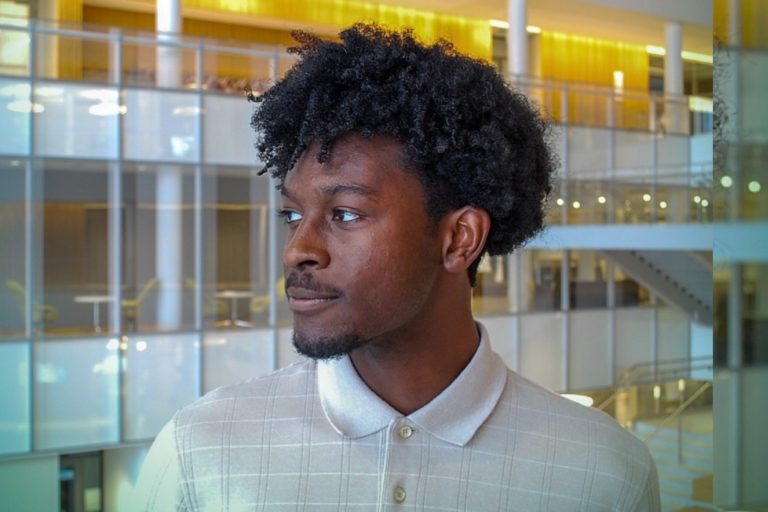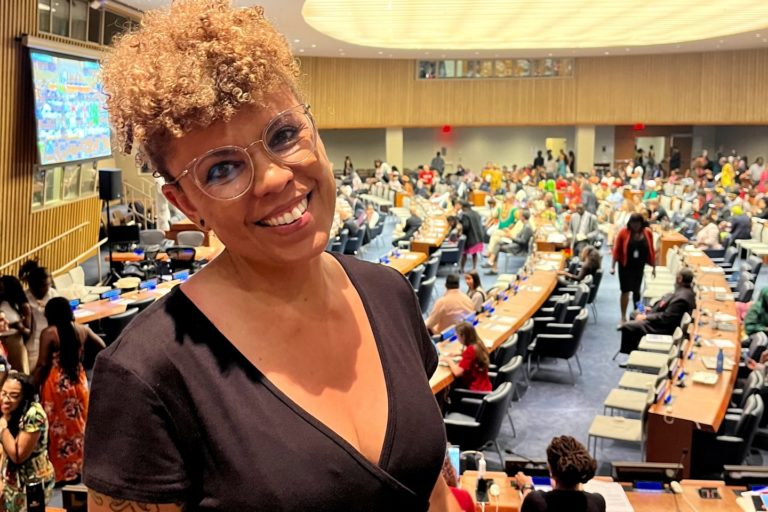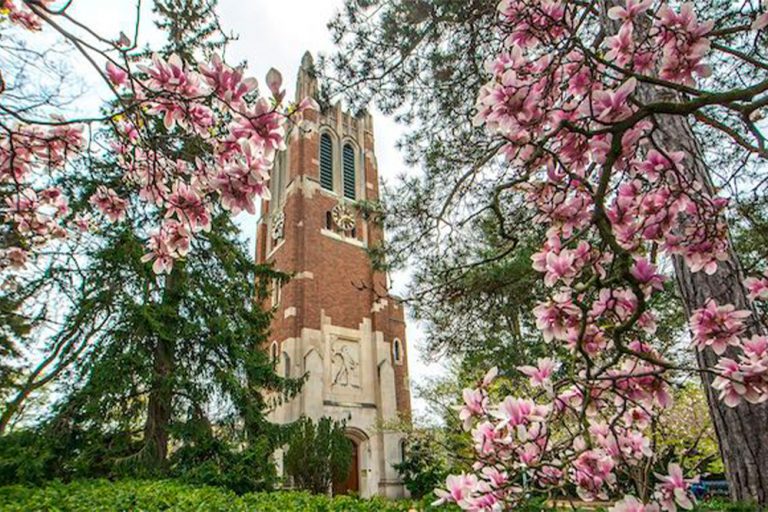While spending a lot of time looking to the past, Christina Boyles has her sights set on influencing the future as she creates archives that provide useful tools, resources, and protocols for disaster and emergency response in vulnerable, marginalized communities.
As an Assistant Professor of Culturally Engaged Digital Humanities and Digital Rhetoric in the Department of Writing, Rhetoric, and American Cultures, Boyles studies how different communities experience disasters and measures different responses to those events. She is driven to help improve the quality of life for people in need by addressing discriminatory policies or injustices levied on particular regions.
I see my purpose as an educator to work to make the world a better place and to empower my students to do so. In my research, as well, it’s crucial to use whatever ability or resources I have to help communities in need.
“I see my purpose as an educator to work to make the world a better place and to empower my students to do so,” she said. “In my research, as well, it’s crucial to use whatever ability or resources I have to help communities in need.”
In fall 2020, the Andrew W. Mellon Foundation awarded Boyles’ “Archivo de Respuestas Emergencias de Puerto Rico” or “Emergency Response Archive of Puerto Rico” project a $325,000 grant to develop a digital open-access repository of oral histories and disaster-related artifacts related to recent disasters in Puerto Rico.
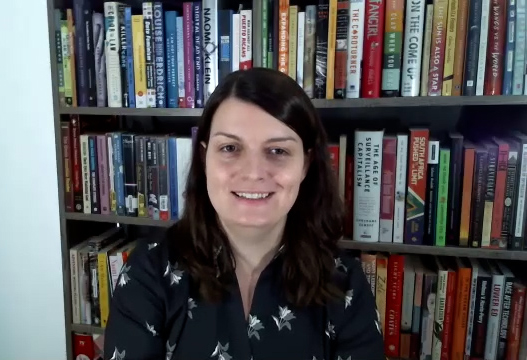
The project creates a freely available repository of materials pertaining to Hurricane María (2017), the Guayanilla earthquakes (2020), and COVID-19 (2020). Accessed through the Omeka S platform, the archive depicts the knowledge and experiences of individuals and community organizations in Puerto Rico in the wake of these disruptive events.
One of our goals is not just to document emergency response materials, but to provide for students and project managers to help community organizations do this kind of archiving work themselves.
“We’re very excited to be supported by the Mellon Foundation,” Boyles said. “One of our goals is not just to document emergency response materials, but to provide for students and project managers to help community organizations do this kind of archiving work themselves. It’s amazing to get to share all these opportunities with students in Puerto Rico and at Michigan State.”
Working with Drs. Mirerza González-Vélez, Nadjah Ríos Villarini, and Ricia Chansky has taught Boyles that the types of disaster response strategies being developed are key to understanding the lived experiences of Puerto Ricans. The systems, too, serve as powerful resources for developing and applying future protocols for disaster response.
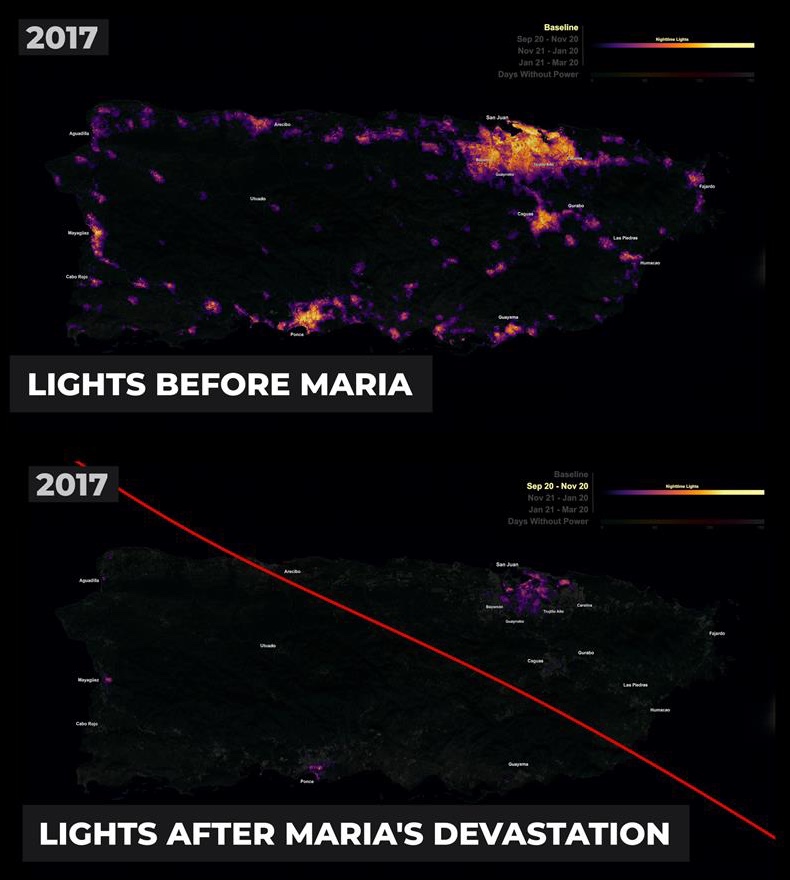
“By looking at a lot of different events, we’re seeing how individuals and groups develop innovative response strategies for the benefit of others,” Boyles said. “Our archive will provide a prominent public resource that can be a great learning tool for communities that are just starting to think through their own response strategies.”
Root Causes and Inventive Responses
The origin of Boyles’ emergency response archive dates back several years to her study of the 1928 hurricane that struck Puerto Rico and Central Florida. She compared how different areas experienced the event and discovered that marginalized communities were disproportionately affected. She noticed, too, the unequal responses and attention paid to different communities based on ethnic or economic make-up. As her studies progressed, she documented elements of environmental racism and expanded her research after hurricanes Irma and María hit in 2017.
Among the root causes, Boyles noted, is Puerto Rico’s inherent geographical risk worsened by climate change. Federal policies also contribute to weakened infrastructure, while a history of colonization left vulnerable or marginalized communities to fend for themselves.
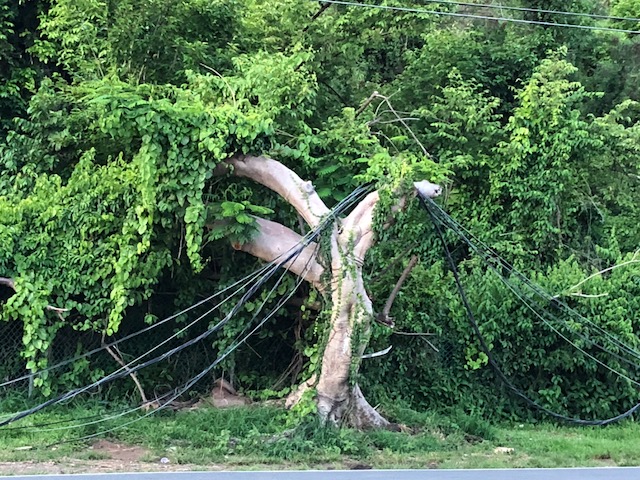
Primarily focused on Puerto Rico, Boyles’ project also brings attention to how disasters can be weaponized to the detriment of public health and safety. It spotlights the strategies and innovative responses applied by individuals and community organizations in the face of devastating neglect.
“These are the valuable sources of knowledge we want to highlight and honor in the archive,” Boyles said. “But we also want to push back on the notion that a people’s resilience justifies the lack of action or response.”
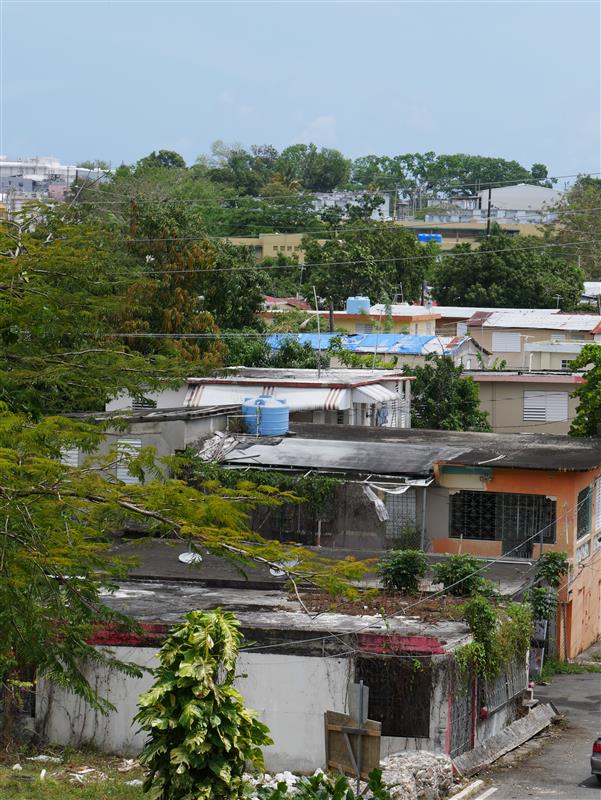
Boyles and the project team will continue to collect and post information about response mechanisms developed by community organizations. Among innovations documented in the public archive are community-led programs for distributing fresh food, providing potable water supplies, and formulating bug repellents. Groups retain the rights and ownership of all materials posted and can repost or rescind what they share with the public at any time.
The big goal of this research is to develop relationships with communities across Puerto Rico. There’s a lot at stake, including the ability of Puerto Rican people to live and exist in their homeland. At core, this project is simply caring about other people.
The project team includes collaborators from the University of Puerto Rico-Río Piedras, the University of Puerto Rico-Mayagüez, MSU Libraries, the Digital Library of the Caribbean, and five community organizations located in and around San Juan, Puerto Rico. More than 10 students from both Puerto Rico and MSU also are members of the team.
“The goal of this research is to develop relationships with communities across Puerto Rico,” Boyles said. “There’s a lot at stake, including the ability of Puerto Rican people to live and exist in their homeland. At its core, this project is simply caring about other people.”
Written by Kim Popiolek
